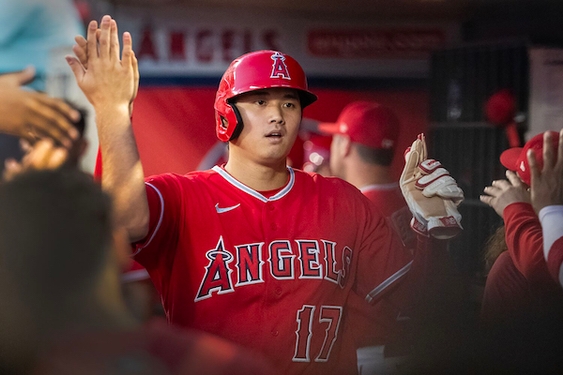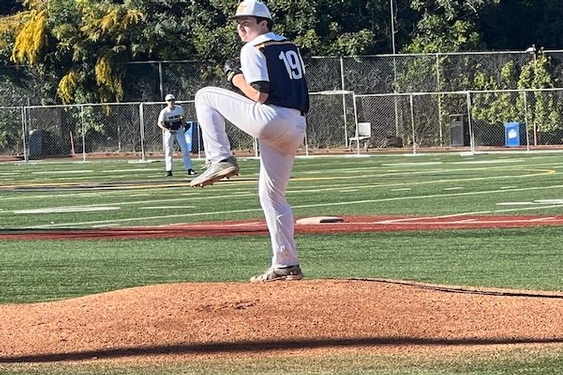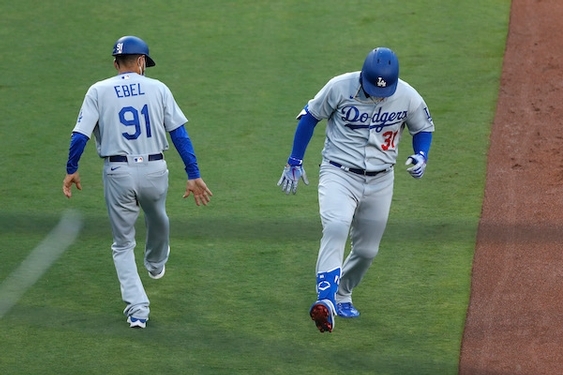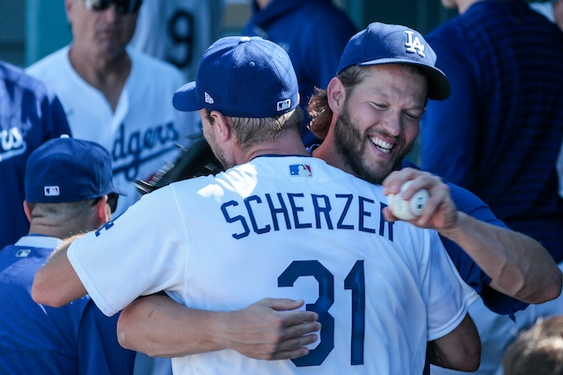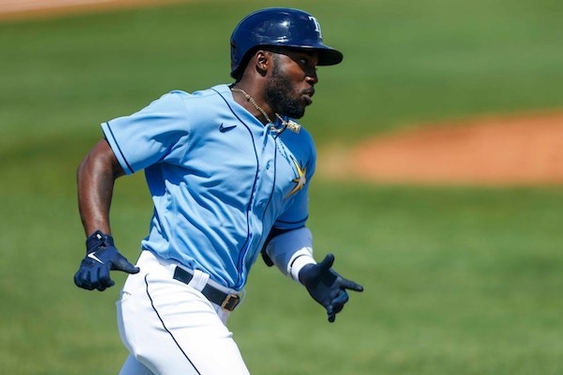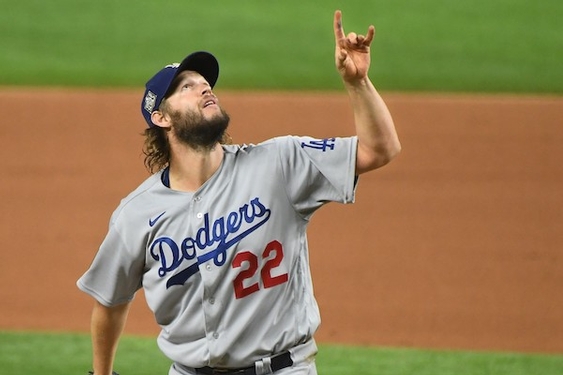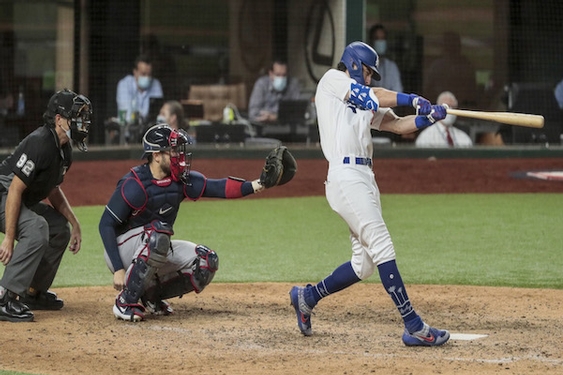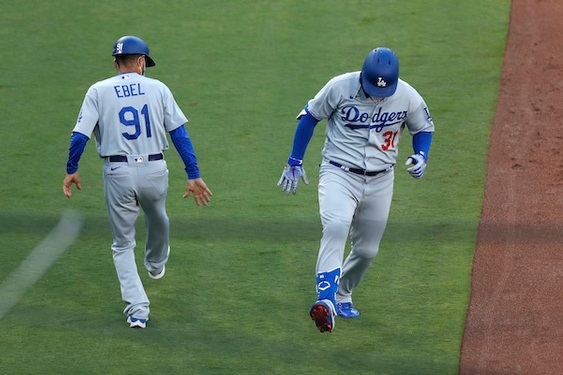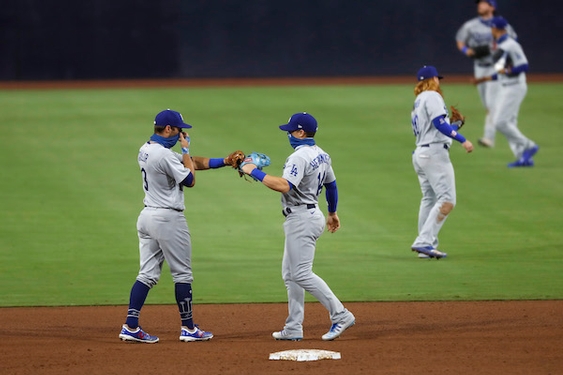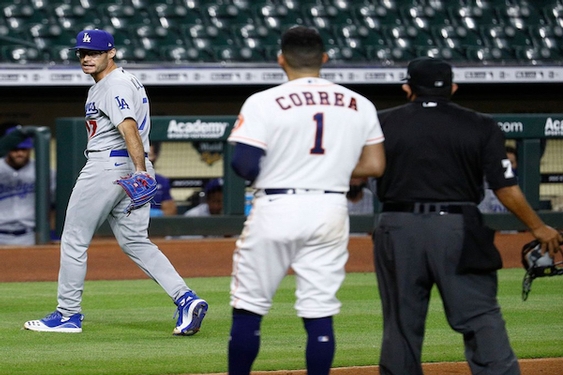There was a certain sentimental feeling in the press box of Dodger Stadium last Thursday night for the team’s last home game of the season. While on the field below the Dodgers smacked around the San Francisco Giants by a score of 8-2, upstairs there were hugs and embraces, some heartfelt handshakes and a few tears. For it wasn’t just the last home game of the season, it was the last time that the Dodgers’ head of communications Josh Rawitch would preside.
For a game like baseball with its 81 home games, each lasting around three hours, the world of the press box becomes its own community complete with friendships, petty rivalries, playful ribbing and social hierarchies. The way that community grows and functions has a lot to do with the public relations team and its leader. In recent times that role has belonged to 34-year-old Rawitch, who joined the Dodgers in 1995 as an intern during his freshman year of college. Rawitch saw the team through its various ownership transfers, from the O’Malleys to Fox to McCourt, while working his way up to Vice President and head of communications.
Considering how ugly some of the events that have occurred with regards to the ownership, one can only imagine what the drama unfolding in the boardrooms of Dodger Stadium was like. Rawitch, in all likelihood, saw much of it. Still, the young Rawitch has always presented a positive and business-like demeanor as a representative of the team. He took his job seriously but also understood that the game of baseball was still just a game, albeit a game with billions of dollars at stake.
Having been part of the O’Malley era, Rawitch seemed to understand the importance of dignity as an essential component to the Dodger legacy. Maintaining that sense of dignity must have become more difficult as things fell apart under current owner Frank McCourt’s stewardship of the team. You started to wonder what Rawitch’s true feelings were outside his professional obligation to defend McCourt. And we may never know unless he decides to write a book, which is beyond doubtful. What we do know Rawitch is leaving to join the Arizona Diamondbacks and with his departure there is one less dignified voice to defend the embattled McCourt.
After the seventh inning, I noticed the Dodger organist, Nancy Bea, packing up her bags as she does every game after playing “Take Me Out to the Ballgame.” But this time as she gathered her belongings, she wept. In a very real way Bea helps keep the spirit of Dodger Stadium alive with her nightly playing of popular and classic tunes, and so she has become a kind of barometer for the mood of the ballpark. Just what those tears were for is her own private business, but I can’t help feeling like they reflect the sentiments of Dodger fans all over. We can all feel a change-a-coming. Whether that appears in the form of a new ownership or the eventual retirement of Vin Scully, nothing lasts forever.
It was fitting that on a night like this the man taking the mound for the Dodgers was Hiroki Kuroda. The quiet Kuroda has been a workhorse for the team since joining the club three years ago. In what was likely his last start in Dodger Stadium, he was solid, giving up only two runs in nearly eight innings of work. Despite the Dodgers’ substantial lead, Kuroda offered no resistance when manager Don Mattingly came out to the mound to ask if he wanted to stay in the ballgame. A fighter and a team player to the end, Kuroda's style of pitching, his way of going about his business was the picture of dignity. He has been a huge part of keeping this team in the fight over the course of this long and troubled season.
As center fielder Matt Kemp and pitcher Clayton Kershaw chase Triple Crown prizes in their respective areas, the team has been interesting to watch to the very end despite their elimination from playoff contention. The team will finish this week with a winning percentage in the neighborhood of .500. Considering their struggles on and off the field, this alone is a triumph.
Sports: Baseball [The Diamond Dispatch]
In a Sentimental Mood
By Dov Rudnick

As always, Hiroki Kuroda was a solid workhorse in the last home game of the season.
(Credit: Lawrence K. Ho/Los Angeles Times/MCT)
Article posted on 9/26/2011
This article has been viewed 2118 times.


